Bubblin’ Up: Mutant Joe
One of Australia's most versatile and elusive artists talks to XLR8R.

Bubblin’ Up: Mutant Joe
One of Australia's most versatile and elusive artists talks to XLR8R.
Mutant Joe‘s latest mixtape, Home Invasion Anthems, came out on Natural Sciences, a little-known label based in Manchester, United Kingdom. Across its 40-minute playtime, the rising Australian artist, whose name remains undisclosed, spilled his guts over trap, Memphis rap, jungle, and street electronics, calling on a horde of collaborators including Lord Pusswhip, Onoe Caponoe, and the Lost Appeal Crew, who mobilised together, pulling in resources from now defunct message boards and online sample dumps.
Underpinning the release and all Joe’s work is Lil Ugly Mane’s Third Side of Tape, released in 2015 and acknowledged by Joe for its “willingness to jump around from genre to genre while maintaining an uncanny atmosphere that really gripped me and forced me to learn production,” he recalls. Teaching himself the ins and outs of studio experimentation, rooting himself in ’80s horror, jungle, gabber, techno, and industrial, Joe dropped two tape releases before reaching out to Natural Sciences for what he perceived as the finest realisation of his sound yet. Released last year, it caused a stir, capturing the the attention of Hudson Mohwake, who dropped three of the 12 tracks [“Lazer Riddim”; “Bandz”; “Knick Knack”] in his TNGHT Essential Mix with Lunice.
Now just 19, Mutant Joe has made a name for himself as one of the most unique, versatile, and elusive artists currently coming up out of Australia, and with his latest releases he’s capturing a new European audience. With more work on the way, Joe chatted with XLR8R to discuss his backstory and how he synthesizes his broad sonic range into a concise and conceptual exploration of the far outer regions of electronic music. In support of the article, he’s offered a free track, “Ice Show” featuring TRiPPJONES and DirtbagMarley, available to download via WeTransfer here.
What’s the story with the Mutant Joe name?
I came up with the name Mutant Joe while reading a review for Lil Ugly Mane’s project Third Side of Tape. In the article, the reviewer described the album as sounding like it was created by a deformed creature locked away with access only to music production software. As I was so into the album and its uncanny grimy sound, I thought up a character that basically fit this description and it stuck as my producer name. That record ultimately shaped how I produce music, both tonally and creatively. The record jumps from industrial to boom bap to southern trap, all while maintaining a very uncanny sound, and this really gripped me from the first listen.
What was your route into electronic music?
I got deep into electronic music quite late comparatively to other genres like rock and hip-hop. I think it was just my obsession with music production and sound experimentation that forced me to explore more electronic-focused genres. I would say that it was only about a year ago that I began to dive deep into genres like jungle, gabber, techno, and electro through labels like Natural Sciences, FTP, and Long Island Electrical Systems.
“I’m more inclined to follow through with this secrecy in how I release my music. I’d probably go fully anonymous if I didn’t think that it wasn’t kind of gimmicky and overdone at this point.”
— Mutant Joe
What was it that appealed to you about sound experimentation?
From a super young age, I’ve always paid the most attention to the structure and production of tracks rather than the lyrics or melodies, for whatever reason. As well as this, I honestly just think that making beats or experimenting with sound is one of the most instantly gratifying and straight-forward forms of creation. A producer can put together an interesting idea within minutes and have something listenable which is super addictive. I believe it’s these two aspects that caused me to gravitate towards production initially.
Who were the first artists and the first labels that resonated with you?
It would take way too long to touch on all the notable phases and artists that have inspired me over the years, but I’ll touch on a couple of the more significant ones that come to mind. One artist and tape that I always mention for inspiring me to start producing was Lil Ugly Mane’s Third Side of Tape. As I mentioned, it was the tape’s willingness to jump around from genre to genre while maintaining an uncanny atmosphere that really gripped me and forced me to learn production. Another tape that moulded my sound early on was Jak3’s Life Path Number 11, which really presented to me how grimy and dark production could get. As for labels, I’ve always loved Tri Angle, L.I.E.S, Warp, and Hyperdub to name a few.
Given that you’re based in Australia, where were you hearing about and then buying these releases?
Basically all of my musical discovery has been thanks to the internet which has ultimately allowed me to dive deep into a heap of genres that I’d otherwise not have access to. Earlier on, a lot of the labels and artists I mentioned were found while browsing Bandcamp and SoundCloud. There were also some great YouTube channels that curated dance and electronic music which opened me up to a lot of rare records.
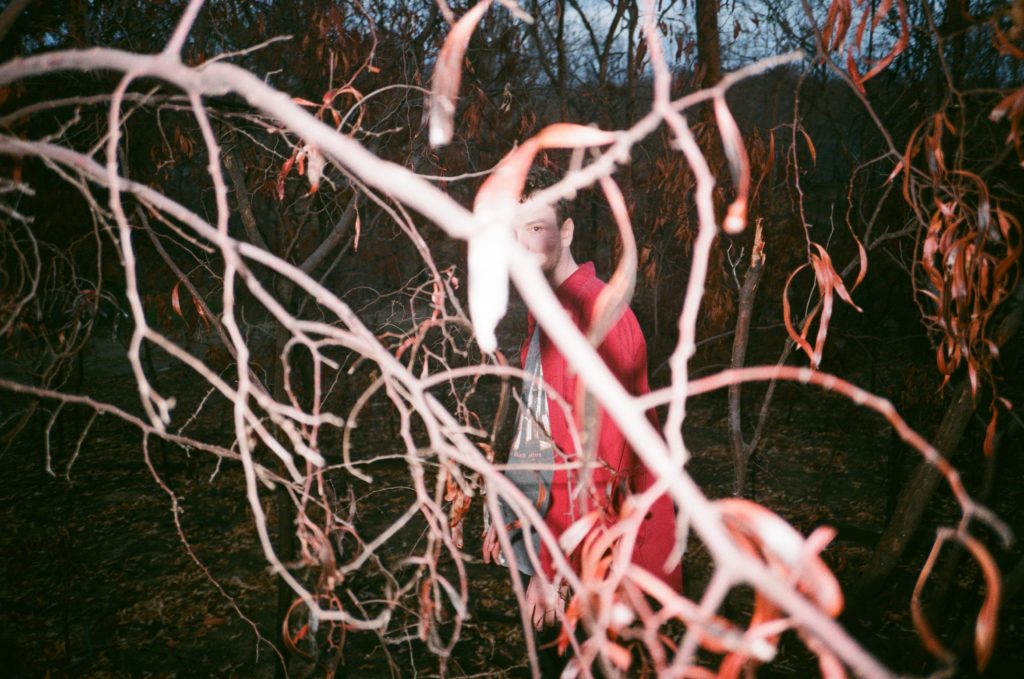
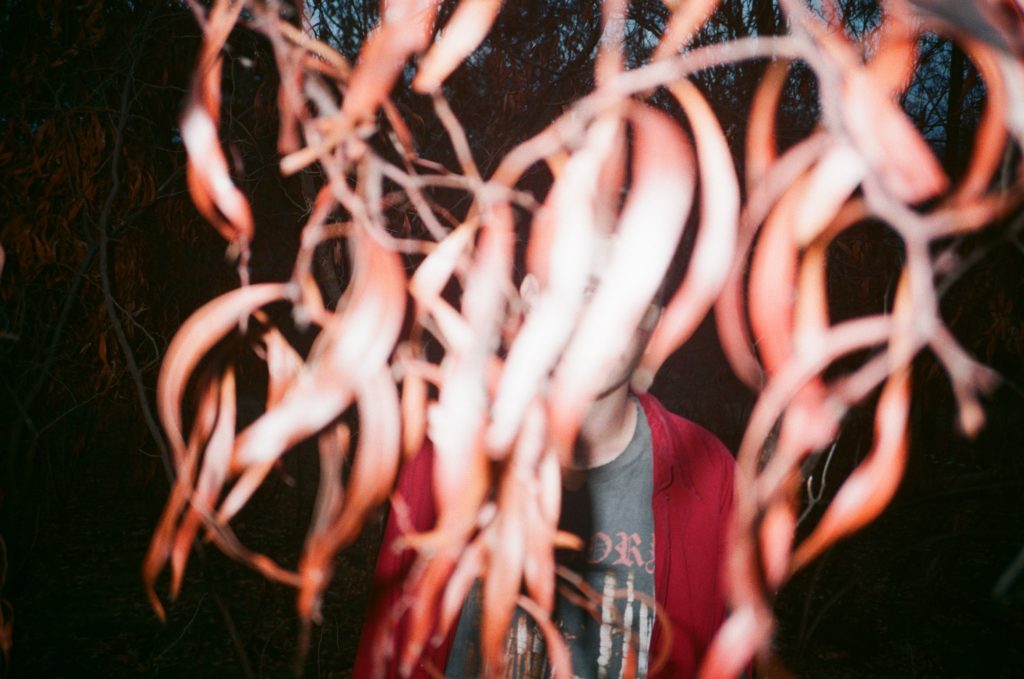
You’ve kept yourself private until now. Why the secrecy?
I’m kind of already a pretty private or introverted person and I really love to mostly just sit at home and be involved with music and art. I was also drawn to production and other similar artforms as they’re largely solo endeavors which involve working away at something over a period of time. As a result, I’m more inclined to follow through with this secrecy in how I release my music. I’d probably go fully anonymous if I didn’t think that it wasn’t kind of gimmicky and overdone at this point. I am, however, slowly learning to be more open, and I hope to do more live sets and studio collaborations in the near future.
How do you find living in Brisbane?
Brisbane is a really laid back city and I definitely appreciate that aspect of it. I am keen, however, to explore other cities in the United States and Europe, which might have more exciting and competitive music scenes. Aside from that small gripe, I love everything about my city and I think a lot of people take for granted the unique geographical beauty and weather we have in Australia, and specifically Brisbane.
Can it feel quite solitary to be producing the music you make?
There are some really cool groups throwing club events which I’m occasionally lucky enough to be involved with, but otherwise I tend to stay in and work on my production. I think I appreciate the solitary nature of producing underground trap for people in the United States and U.K. because it allows me to exist somewhat as an outsider and maintain a fairly neutral perspective on those scenes. The same thing goes for some of the club music I’ve been producing lately, but I do believe dance music genres tend to be less based on geography compared to underground rap scenes.
There’s a lot written about the Manchester music scene nowadays. How do you rate it?
I’m still new to the Manchester music scene and can only really say I know anything about it through Natural Sciences. I am, however, a huge fan of quite a few artists who have come out of that part of the U.K. I hear that a lot of the north of England can be pretty rough and I would assume that those kinds of environments lead to really hard, gritty, and forward-thinking music.
Is this hard, gritty sound something that you connect with?
I absolutely have always gravitated towards these kinds of textures and atmospheres in my production for some reason. I take huge inspiration from records that really push the envelope with dark lo-fi sounds; a great example of this would be That’s Harakiri by SD Laika. Ever since I heard that album, I’ve always tried to recreate my own kinds of highly textured lo-fi atmospheres in my tracks. I feel like the projects I’m currently working on which will be released soon best exemplify this and I’m extremely excited to show everyone.
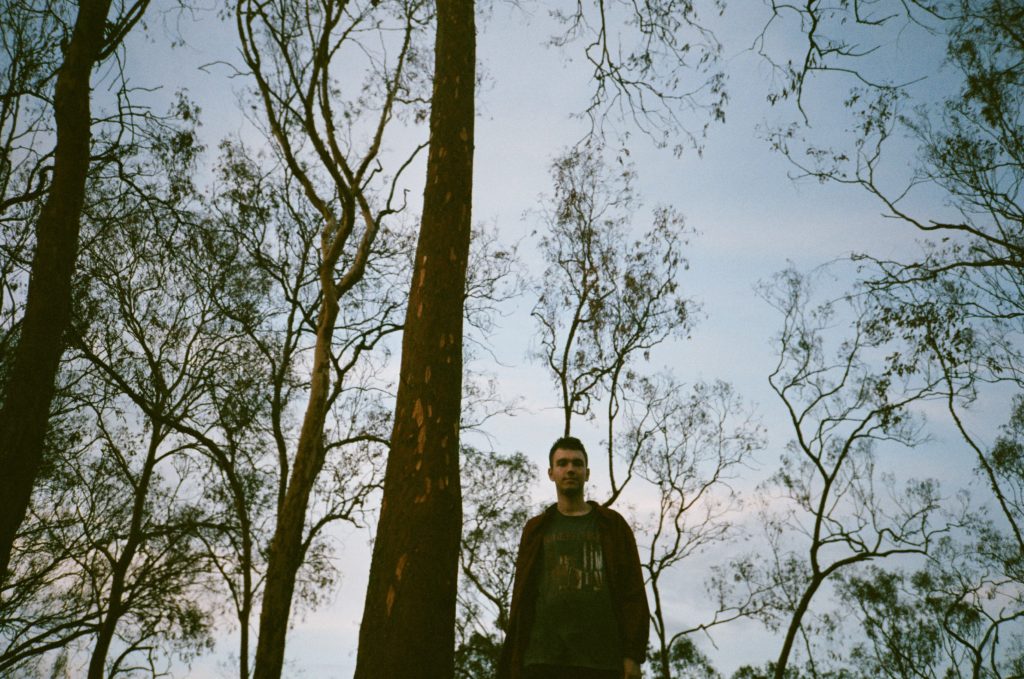
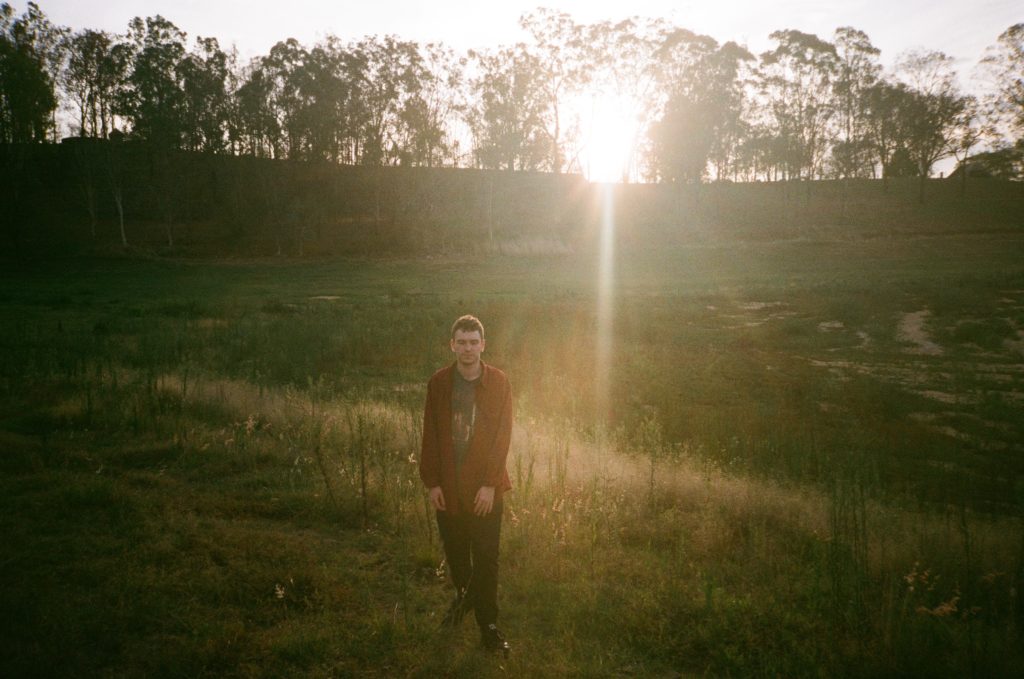
How did you connect with the Natural Sciences label?
While I was finishing up early versions of Home Invasion Anthems, I was looking for a label to release it. I had seen some of my collaborators and friends release some tapes through them so I thought it would be worth contacting the label. They really liked what they heard from my demos so we began discussing various releases and it all went from there.
When did your sound begin to develop into what it is today?
I think like most new producers, I started out with just pure experimentation using cheap production software, and to be completely honest this process has continued on to this day. If you’re truly curious about electronic music and production, it makes sense to touch on a plethora of genres, which is what I try to do. Over the years, I’ve attempted to explore as many sounds and electronic music scenes as possible, which has led me from noise music to underground trap to electro and even jungle. I hope that my current sound represents this approach to music, and I hope to continue to be forward-thinking into the future.
What area of your production are you really trying to develop?
I think the aspect of my production which I tend to focus the most on is atmosphere. As a producer, you can really develop this through your choice of textures and soundscapes, which is what I spend a lot of time doing. I always make an effort to incorporate off-kilter or uncanny elements into more structured or traditional rhythms and recontextualize sounds into new genres.
Can you talk briefly about how you achieve this, and where we can hear this in your music?
I really believe that achieving this kind of mood or atmosphere is largely intuitive through the choices that you make. As a producer, you really need to understand the tone you’re going for and sample or create sounds accordingly. I really tried to apply this to my debut release, Home Invasion Anthems, and most of the tracks were pretty successful in keeping to developing a consistently dark and grimy atmosphere. Future releases as well really expand and focus on the darker sides of my production which I’m super excited to show to everyone.
What’s your studio setup like nowadays?
I produce literally everything on a single laptop in my bedroom with absolutely no hardware or MIDI equipment. I’ve stuck to this very minimalist digital DAW and VST-only setup because it means I can produce anywhere and on basically any computer. I think limiting yourself in certain aspects like this can actually open you up more creatively and force you to be more resourceful in how you create music.
What are the main VSTs you’re using?
I try to keep a lot of my production techniques to myself, but I will say that I download a lot of older outdated programs and sample packs from music production forums I stumble upon. There’s really so much incredible untouched content from like 2008 and earlier that no one seems to use these days. I often use weird synths and sample packs originally meant for early hardstyle or drum & bass because there’s an element of exclusivity and rarity to them.
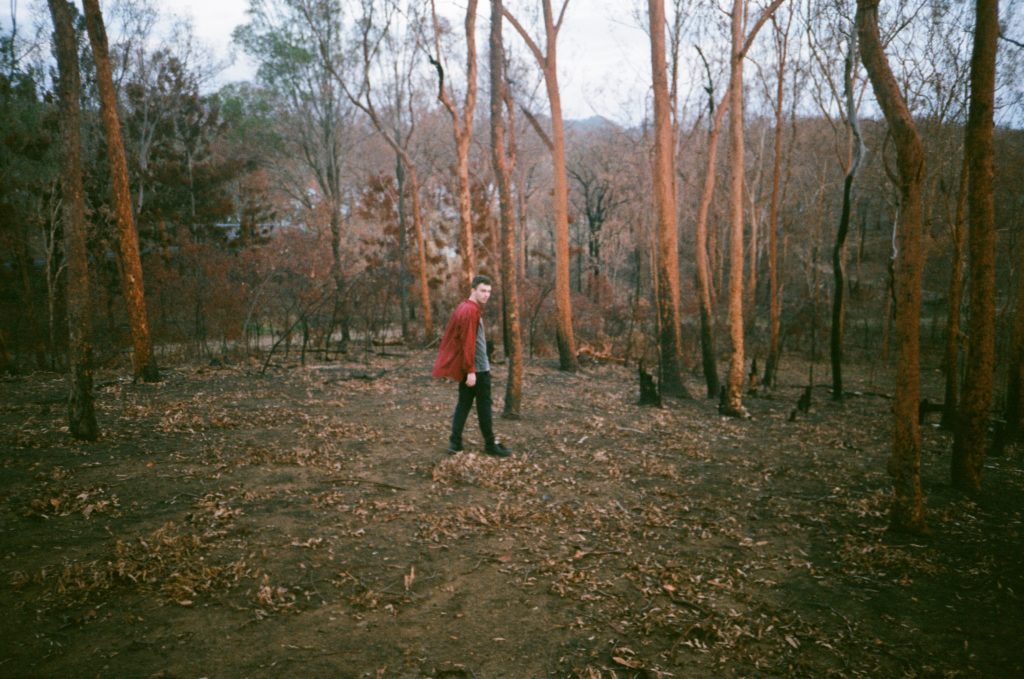
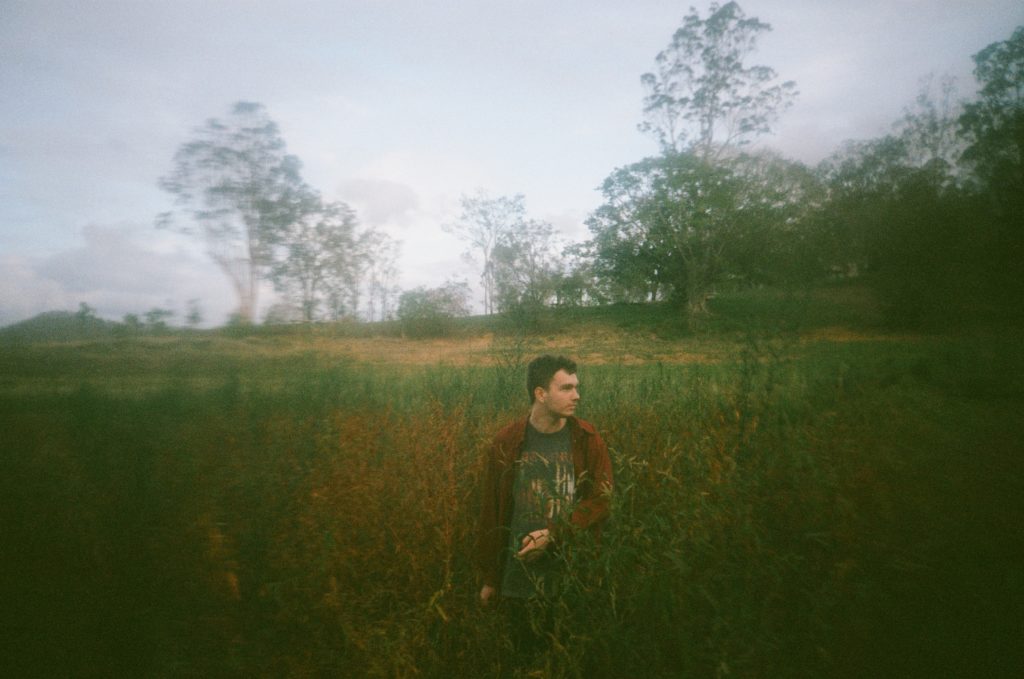
Three tracks from the album surfaced in TNGHT’s BBC Radio 1 Essential Mix. How did the music get to them?
As far as I know, Hudson Mohawke had come across the Natural Sciences Bandcamp page and downloaded Home Invasion Anthems. If this is exactly how it went down, it’s pretty cool to have massive artists like them still reach out and appreciate the smaller underground scenes.
How far along are you in developing a live set?
I’m trying to do an hour of mixing every day just to develop a more cohesive selection of tracks and get better at mixing in general. I’m hoping to do more shows in the near future so I should be ready with a full new live set very soon. I’m just determined to have a really fresh variety of genres and not do a boring safe house or techno set, even if that compromises a level of cohesion.
How do you spend your time away from music, what do you do for work?
I don’t do much outside of music production and mixing. I like walking a lot and driving to scenic areas around my city. I’m not working at this exact time, but I will probably get back into warehousing soon, which is what I have done mostly for work over the last couple of years.
Which artists are particularly inspiring you right now?
There are far too many to touch over but I’ll mention a few that come to mind right now. In the realm of dance and electronic music, people like Randomer and Blawan have really been inspiring me to explore new ways of incorporating interesting textures and atmosphere into club tracks. With underground hip-hop production, I’m hugely inspired by producers like Jak3, Tony Seltzer, and Apoc Krysis, as they all take an extremely forward-thinking approach to rhythm and mixing when it comes to making beats.
Do you think carefully about where you’re going with music or is it a case of just enjoying where you’re at right now?
I honestly just love music production and experimenting with sound, and I’m eager to push certain genres forward as much as possible. The idea of being super derivative and safe is creatively stressful for me and I take the creative process quite seriously in that respect. I do, of course, enjoy almost every moment of music creation and wouldn’t do all this if I didn’t.
Can you tell us something about the track you’ve offered for download today?
I recorded this track with TrippJones and DirtbagMarley while I was in New York last year and I was yet to properly release it. I feel that the track exemplifies the dark uncanny tone I aim to achieve in the trap I produce and both Tripp and Marley accompanied the beat perfectly. I hope we can get to finishing up a full project together because I really love working with these guys.
What’s next, looking forward?
I’m working on a heap of new projects ranging from hip-hop to techno to ambient, and I hope to have a bunch of them come out this year. I also am keen to do some traveling with my music and perhaps visit Europe to do some shows. I’m extremely excited to present everyone with lots more of my work in 2020.

